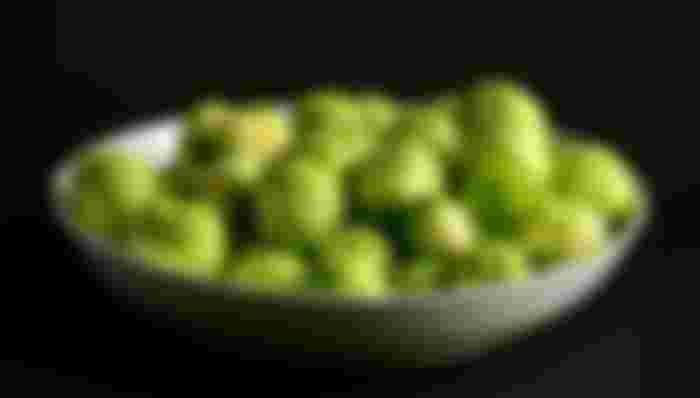
Gases, a problem also known as meteorism, are usually annoying because, although in most people they do not produce symptoms, in others it can even be painful.
Fortunately, with the exception of extreme cases that require medication, it is only a matter of avoiding foods that cause gas. But, what are the flatulent foods that we should stop consuming? Pay attention to the following tips and take note of the changes you must make in your life and in your diet to avoid the appearance of gases.
Why gases are produced
The gases present in the digestive system appear through the digestion process and is normal, as is its expulsion through belching or flatulence. However, you may experience pain from gas-causing foods, especially if they are trapped or not moving as they should in the digestive system.
Most of the time, the increase in gases and the pain they cause appear as a consequence of consuming flatulent food. In this way, making some simple changes in eating habits can decrease their presence. In addition, various disorders of the digestive system, such as irritable bowel syndrome or celiac disease, can cause an increase in the amount of gases or the pain they produce, among other symptoms. Some of its signs include the following:
Belching and gas expulsion. Most people pass gas about 20 times a day, and while having gas can be uncomfortable or embarrassing, belching and passing it is rarely related to a medical problem.
Increased abdomen size or bloating.
Pain, cramps, or a knotty feeling in the abdomen.
Feeling of fullness or inflammation in the abdomen.
Foods that produce more gases
There are no prohibited or bad foods, but you should know that there are flatulent foods that can make you feel unwell due to this problem.
Cereals, legumes and tubers. Reduce the consumption of products rich in fiber, since the intestine is not able to digest these fibers, increasing their amount in the colon. In this way, the bacteria of the flora ferment them producing more gases. Decrease the consumption of whole grains, rice and whole grains, beans, beans, chickpeas, lentils, potatoes and peas.
Vegetables and greens. Vegetables that give gas include: cabbage, cauliflower, Brussels sprouts, spinach, cabbage, artichokes, lettuce, turnips, chard, peppers, asparagus, cucumber, and curd onion. Not for this reason we should stop eating vegetables on a daily basis, but we should moderate the consumption of those that have a high fiber content.
Drinks. If you are prone to gases, forget about carbonated or carbonated drinks. They provide a lot of gas immediately and have no nutritional contribution. Better to drink plenty of water, herbal teas and broths, avoiding beer, soft drinks and red wine.
Fats It is essential that you reduce meals with excess fat, as they are flatulent foods. Use to cook virgin olive oil or seed oil in moderation and avoid fried foods, butter, nuts and margarine.
Dairy products. It is better to opt for semi-skimmed dairy products, reducing the consumption of fatty and cured cheeses and yogurts with fruits, cereals or nuts.
Meat, fish and eggs. If you want to avoid foods that cause gas, better cook with cow, beef, turkey, chicken and suckling lamb. As for fish, both white and blue should remain in your diet. Eggs are not considered flatulent foods, so there is no consumption limit, but better to prepare them poached, boiled or in a French omelette. Avoid deli meats and organ meats and it is preferable that you prepare cooked or roasted foods. Decrease fried and battered.
Sugars and sweets. The consumption of these products should be occasional, using honey and sugar in moderation. Decrease the consumption of chocolate and cocoa, pastries and industrial pastries.
Seasonings The use of salt is not discouraged, and neither is aromatic herbs. But you should decrease the consumption of black or white pepper, cayenne and green, paprika and chilli.
Home remedies against gases
Anise tea. Highly recommended after meals that cause gases because it has antispasmodic properties.
Gentian tea. Regulates peristaltic movements and helps stimulate the production of gastric juice, making it an excellent remedy against intestinal and stomach gases.
Infusion of avocado leaves. It is a diuretic and helps calm the digestive system. It also contributes to the expulsion of gases, fights diarrhea and eliminates kidney stones.
Cardamom tea. If you have eaten gassy vegetables, this tea helps relieve symptoms and discomfort, fatigue and bloating of the abdomen.
Melissa or lemon balm tea. It helps to decrease the formation of gases in the intestine, also fighting constipation, one of the causes of gas accumulation.
Infusion of carqueja. Drink a cup of this tea after eating flatulent food.
Ginger tea. In addition to eliminating gases, you can also use it to help fight nausea and vomiting.
Herbs infusion. Add basil, star anise, mint and anise, as these plants have antispasmodic properties that help fight gases.
Coriander tincture. It is ideal and an effective remedy after eating foods that cause gas.
